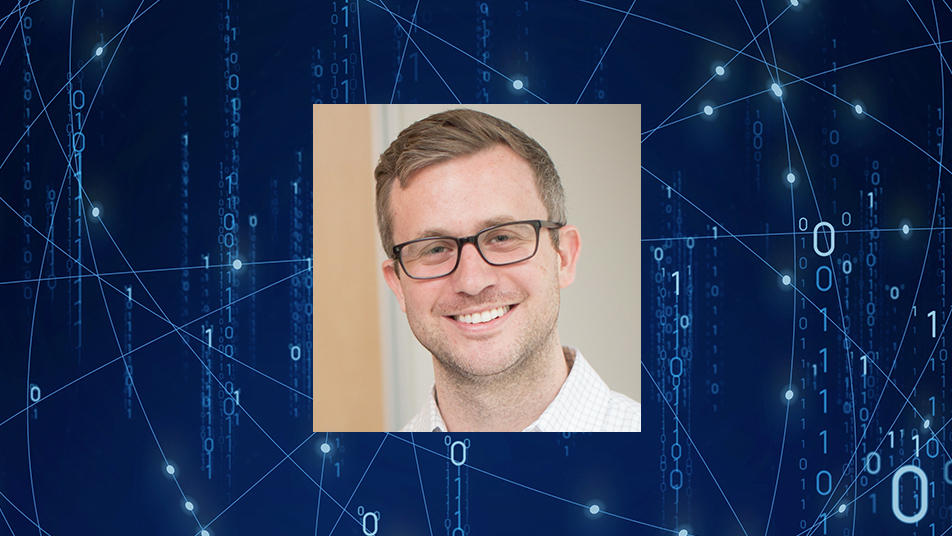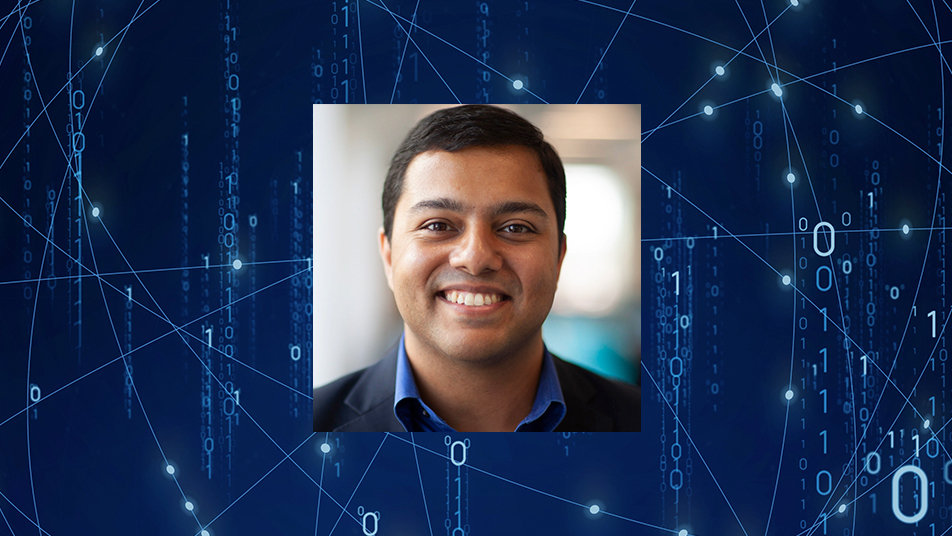NEJM AI Grand Rounds
NEJM AI Grand Rounds, hosted by Arjun (Raj) Manrai, Ph.D. and Andrew Beam, Ph.D., features informal conversations with a variety of unique experts exploring the deep issues at the intersection of artificial intelligence, machine learning, and medicine. You’ll learn how AI will change clinical practice and healthcare, how it will impact the patient experience, and about the people who are pushing for innovation. Whether you are an AI researcher or a practicing clinician, these conversations will enlighten and surprise you as we journey through this very exciting field. Produced by NEJM Group.
Episodes
Wednesday Dec 17, 2025
What Values are in AI? A Conversation with Dr. Zak Kohane
Wednesday Dec 17, 2025
Wednesday Dec 17, 2025
For Dr. Zak Kohane, this year’s advances in AI weren’t abstract. They were personal, practical, and deeply tied to care. After decades studying clinical data and diagnostic uncertainty, he finds himself building his own EHR, reviewing his child’s imaging with AI, and re-thinking the balance between incidental and missed findings. Across each story is the same insight: clinicians and machines make mistakes for different reasons — and understanding those differences is essential for safe deployment.
In this episode, Zak also highlights where AI is spreading fastest, and why: reimbursement. While dermatology and radiology aren’t broadly using AI for interpretation, revenue-cycle optimization is advancing rapidly. Meanwhile, ambient documentation has exploded — not because it increases accuracy or throughput, but because it improves clinician satisfaction in strained systems.
Yet the most profound theme, he argues, is values. Models already show implicit preferences: some conservative, some aggressive. And unlike human clinicians, no regulatory framework examines how those preferences form. Zak calls for a new form of oversight that centers patients, recognizes bias, and bridges clinical expertise with technical transparency.
Transcript.
Wednesday Nov 19, 2025
From Hindsight Bias to Machine Bias: Dr. Laura Zwaan on Learning from Mistakes
Wednesday Nov 19, 2025
Wednesday Nov 19, 2025
As a cognitive psychologist, Dr. Laura Zwaan studies how humans make—and learn from—mistakes. In this episode of NEJM AI Grand Rounds, she brings that lens to AI, showing how machines inherit our biases and why both need transparency and reflection. From the challenge of defining diagnostic error to the promise of “machine psychology,” Dr. Zwaan explores how human reasoning can inform safer algorithms and better care. Her message is clear: the path to trustworthy AI begins with understanding ourselves.
Transcript.
Wednesday Oct 15, 2025
Medicine, Machines, and Magic: Dr. Jonathan Chen on Medical AI
Wednesday Oct 15, 2025
Wednesday Oct 15, 2025
In this episode, Dr. Jonathan Chen joins the hosts to discuss his path from teenage programmer to Stanford physician-informatician and why machine learning has both thrilled and unnerved him. From his 2017 NEJM essay warning about “inflated expectations” to his latest studies showing GPT‑4 outperforming doctors on diagnostic tasks, Dr. Chen describes a discipline learning humility at machine speed. This conversation spans medical education, automation anxiety, magic, and why empathy—not memorization—may become the most valuable clinical skill.
Transcript.
Wednesday Sep 17, 2025
From Clinician to Chief Health AI Officer: A Conversation with Dr. Karandeep Singh
Wednesday Sep 17, 2025
Wednesday Sep 17, 2025
Dr. Karandeep Singh brings two worlds together: programming and medicine. In this conversation, he explains how early experiments with code led him to biomedical informatics, why gaps between paper performance and clinical reality must be confronted, and how governance committees weigh ethics and safety. Now serving as Chief Health AI Officer at UC San Diego Health, he reflects on lessons from deploying sepsis prediction tools, the risks of hype, and the promise of integration. For clinicians, Singh’s story is a reminder that the best AI is guided by patient care, deep expertise, and humility about the limits of technology.
Transcript.
Wednesday Aug 20, 2025
Radiologist Turned CEO: Dr. Jeremy Friese on AI for Prior Authorization
Wednesday Aug 20, 2025
Wednesday Aug 20, 2025
Dr. Jeremy Friese knows medicine from both sides. A practicing radiologist and technology executive, he’s seen firsthand how administrative burden undermines care. In this episode of NEJM AI Grand Rounds, he walks through the origins of prior authorization, explains why he believes artificial intelligence can close the gap between patients and payers, and argues that real reform means showing your work—just like in math class. At Humata, he’s combining human oversight, LLMs, and interoperability to try to fix a broken system. For clinicians overwhelmed by back-office complexity, this conversation offers both urgency and optimism.
Transcript.
Wednesday Jul 16, 2025
Can AI Accelerate Science? Dr. Andy Beam on AI’s Next Frontier
Wednesday Jul 16, 2025
Wednesday Jul 16, 2025
Dr. Andy Beam has trained models, mentored scientists, and used data to quantify the value of treatments. In this episode of NEJM AI Grand Rounds, Raj Manrai turns the table on his co-host, reflecting on how Andy’s childhood misdiagnosis, and the failure of human recall, revealed the diagnostic promise of machine learning. As a Harvard professor, he mentored hybrid thinkers and built tools to evaluate safety, not just performance. Now CTO of Lila Sciences, he’s building an experimental AI system to generate its own hypotheses and test them in the real world. This conversation is a front-row seat to the next evolution of science.
Transcript.
Wednesday Jun 18, 2025
Wednesday Jun 18, 2025
In this episode of NEJM AI Grand Rounds, guests Drs. Alan Karthikesalingam and Anil Palepu of Google walk co-hosts Raj Manrai and Andy Beam through the making and evaluation of AMIE, an AI system designed to conduct clinical conversations with patients. Alan and Anil explain how AMIE was trained using synthetic doctor-patient interactions generated by LLMs playing multiple roles—doctor, patient, critic, and moderator. They reveal how synthetic dialogue, guided by structured feedback and grounded in search, proved more effective than noisy real-world transcripts in building a model that could reason, ask questions, and show empathy. The discussion also covers what the “long tail” of medicine demands for building robust AI systems and how AMIE might one day augment real clinical workflows. Finally, Alan reflects on how AI has changed—and how it hasn’t—in the two years since he was last on the podcast.
Transcript.
Wednesday May 21, 2025
Rewriting the Clinical Playbook: Dr. Shiv Rao on Scaling Empathy with AI
Wednesday May 21, 2025
Wednesday May 21, 2025
Dr. Shiv Rao, cardiologist and CEO of Abridge, joins hosts Raj Manrai and Andy Beam on NEJM AI Grand Rounds for an inspiring conversation at the intersection of medicine, technology, and meaning. Shiv shares the origin story of Abridge, reflecting on how a deeply human encounter in clinic sparked the idea for a company now transforming clinical documentation across more than 100 health systems. From his early days programming electronic music to navigating LLM deployment at scale, Shiv offers a rare look into the soul of a founder building not just infrastructure — but a movement. He unpacks how generative AI can be used to restore presence in the clinic, what it takes to earn clinician trust, and why he believes taste, empathy, and curiosity are the real moats in health care AI.
Transcript.
Wednesday Apr 16, 2025
Pixels to Protocols: Building the AI Future of Pathology with Dr. Faisal Mahmood
Wednesday Apr 16, 2025
Wednesday Apr 16, 2025
Dr. Faisal Mahmood, Associate Professor of Pathology at Brigham and Women’s Hospital and Harvard Medical School, joins hosts Raj Manrai and Andy Beam on NEJM AI Grand Rounds to explore the frontier of computational pathology. From pioneering foundational models for whole slide imaging to commercializing a multimodal generative AI copilot for pathology, Faisal shares how his team is redefining what’s possible in digital diagnostics. He discusses the power of open-source culture in accelerating innovation, his lab’s FDA breakthrough designation, and how generative AI could trigger widespread digitization in pathology. Faisal also reflects on his creative approach to problem selection and offers a vision for a future shaped by patient-level foundation models and agent-led computational biology.
Transcript.
Wednesday Mar 19, 2025
Wednesday Mar 19, 2025
Morgan Cheatham joins hosts Raj Manrai and Andy Beam on NEJM AI Grand Rounds to discuss the evolving landscape of artificial intelligence in health care, from its role in automating clinical documentation to its transformative potential in genomic medicine. A venture capitalist and future physician, Morgan shares how his background in computational decision sciences led him to medical school and investing, offering insights into how AI is reshaping everything from disease phenotyping and clinical decision-making to scaling precision medicine. He reflects on his work evaluating ChatGPT’s performance on the USMLE, the growing importance of genomic learning health systems, and why the biggest challenge isn’t technological innovation—but aligning payment models to support AI-driven advancements in medicine.
Transcript.

NEJM AI Grand Rounds
Artificial intelligence has transformed our consumer lives. And it's being increasingly applied to medicine. Medicine presents unique, technical, ethical, and legal questions around both the development and the sustainable deployment of AI. NEJM AI Grand Rounds, a podcast from NEJM Group, explores these topics while providing a forum to discuss evidence and resource sharing alongside debate about the best approaches to integrating AI within the healthcare system. NEJM AI, a new journal in medical artificial intelligence and machine learning, is coming soon from NEJM Group.

Andrew Beam, PhD, is a co-host of the NEJM Group podcast NEJM AI Grand Rounds. Andrew is a longtime AI optimist and is deeply committed to realizing an AI-enabled health care system that works for everyone. Andrew is an assistant professor in the Department of Epidemiology at the Harvard T.H. Chan School of Public Health, with a secondary appointment in the Department of Biomedical Informatics at Harvard Medical School. His lab develops new artificial intelligence methods by combining large-scale deep-learning models with techniques from causal inference to improve the safety and robustness for medical applications. He has a particular interest in using AI to improve neonatal and perinatal outcomes. Outside of the lab, Andrew lives in Waltham, MA, with his wife, Kristyn, a neonatologist and frequent collaborator. They are currently focused on training their largest neural net to date: a three-year-old named Hallie whose entropy maximization algorithm means there is never a shortage of things to clean up!

Arjun “Raj” Manrai, PhD, is a co-host of the NEJM Group podcast NEJM AI Grand Rounds. Raj is an assistant professor in the Department of Biomedical Informatics at Harvard Medical School, where he directs a research lab that works broadly on machine learning and statistical approaches to improve medical decision-making. Focus areas for his group include the clinical use of genomic data and blood laboratory biomarkers, inherited heart disease and kidney disease, decision-making across populations, and reproducibility challenges for medical AI. Raj took the scenic route to medical AI, earning an AB in physics from Harvard College, followed by a PhD in bioinformatics and integrative genomics from the Harvard-MIT Division of Health Sciences and Technology. He resides in the Boston area, and outside work he can usually be found losing home dance competitions to his two young daughters.
Sign up for the NEJM AI This Week Newsletter
Stay on the cutting edge of developments in artificial intelligence and machine learning in medicine by signing up for NEJM AI's This Week newsletter.
Featuring:
- Highlights from recently published articles in NEJM AI
- Learn when new episodes of this podcast, NEJM AI Grand Grounds, become available


